A wake for The Wakan
“I’d like to save that mast! Get those turnbuckles off of it!”
Mariner Leroy Zerlang barked orders to his crew as they readied the ship for demolition at the dry dock in Fields Landing. The Wakan, grounded and laid on her side on the oil-soaked pavement, was stripped of any salvageable parts while she waited to be crushed and moved, piece by piece, into a giant nearby dumpster by the steel arm of a large excavator.
Good night, boat.
The Wakan was one of four derelict and/or abandoned vessels set to be destroyed Wednesday morning by Zerlang and Zerlang Marine Services. Like the others, the ship had been docked for an extended period locally without anyone paying its dock fees.
According to Zerlang, The Wakan‘s journey to her final resting place was an unfortunate one. She was the dream boat of a local man who built her from scratch. But after a divorce and losing his job at the pulp mill the owner moved away to seek work. Like all of the boats laid to rest Wednesday, Zerlang made sure to bless The Wakan one last time.
“This is a sad day,” Zerlang said. “His whole soul was in this boat. This is like a funeral.”
Zerlang estimates his company destroys 12 to 15 boats per year, often in conjunction with the City of Eureka and the Humboldt Bay Harbor District. When the owners of abandoned ships either can’t be found or can’t afford to pay for their demolition, the city and/or the harbor district ends up footing the bill.
The Chickapin was also on the chopping block Wednesday morning, According to Jeff Raimey, harbor and facilities superintendent with the City of Eureka, the ship has had a lien against it for seven or eight years and recently had to be retrieved by the Coast Guard after it drifted off into south Humboldt Bay. Fed up, the City just went to the owner’s house and he agreed to sign it over. Raimey says part of the motivation for the demolitions is environmental.
“If the boat sinks, you’ll need a private company to come do a spill response,” he said, noting the ships are emptied of fuel before they are moved to Fields Landing.
The Cluny is hoisted one final time by Marion Liuzza
As another ship, The Cluny, was moved into position by a mammoth, 150-ton, four-legged rolling boat hoist, Z&Z worker Young Yoon noted, “I used to work on that boat.” Yoon estimated it to be about 15 years ago when he fished for tuna on The Cluny 100 miles off the coast of Oregon with then captain Phil Kline. He also noted that the ship was named after a brand of cheap Canadian whisky.
“They must have been drinking it when they built it,” Yoon guessed.
“I heard Leroy is buying a bottle of Cluny,” joked Justin Brown, another worker. The Outpost did not check in later to see if Brown’s wish came true.
Author Ray Hillman inspects the innards of The Wakan
While Z&Z workers toiled away breaking up the ships, a few others huddled around hoping to scoop up unwanted items of some monetary or historic value. One such man — local historian Ray Hillman, author of the book Shipwrecked at Samoa, California about the U.S.S. Milwaukee — scored some old oars and a ladder that used to run between decks.
“This is hands-on history,” Hillman said. “And it’ll be here for a few more minutes.”
A 1983 quarter was found underneath the base of the mast of The Wakan. Placing a coin under the mast of a ship during a ceremony known as “mast stepping” is traditional in shipbuilding and is thought to bring good luck.
Z&Z worker Young Yoon with The Cluny, a ship he once crewed
Z&Z workers Cody Hills, above, and Jake Ruiz, below ready a mast for removal
Z&Z worker Justin Brown salvages parts of The Cluny
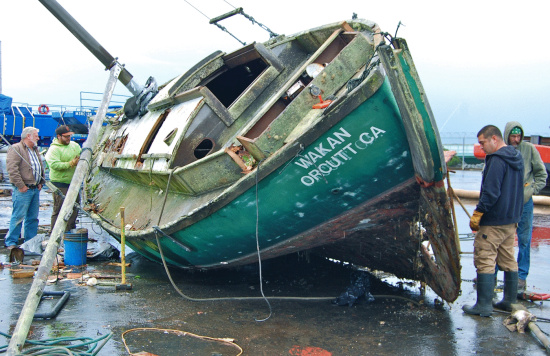
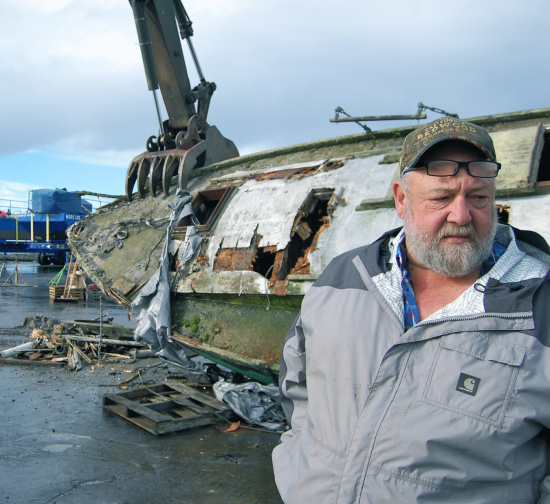
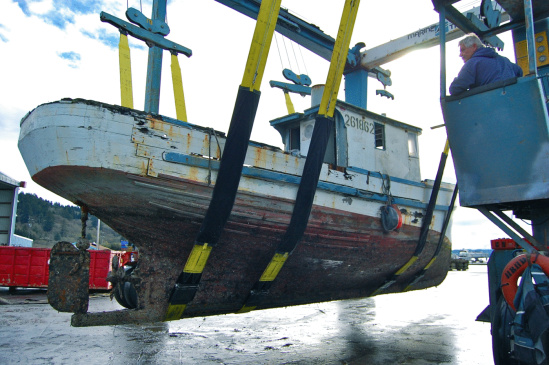
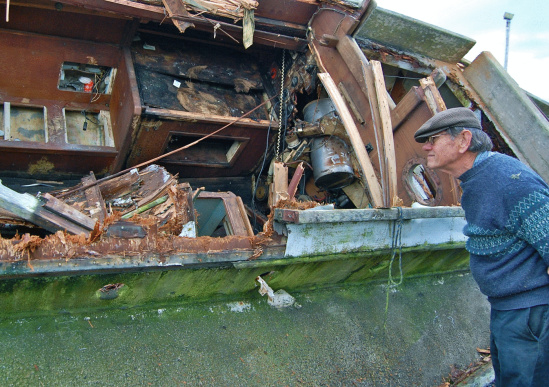
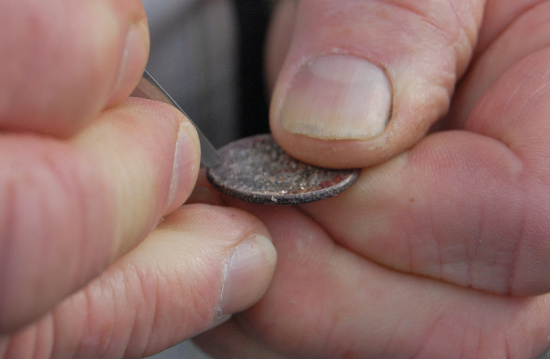
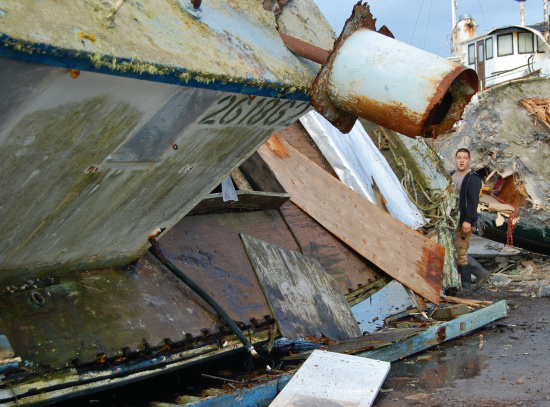
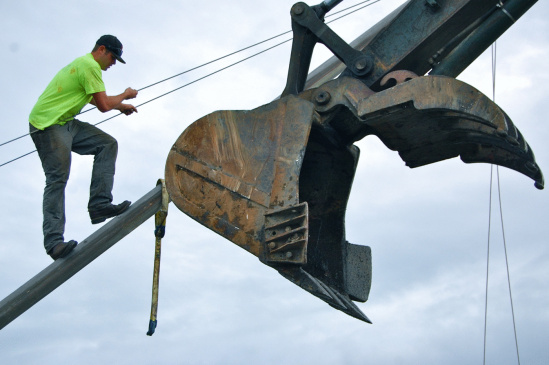
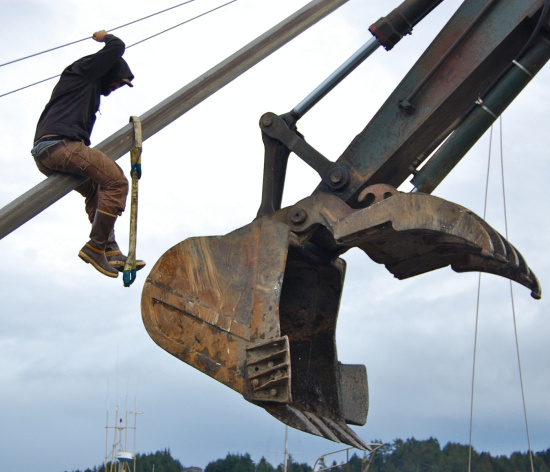

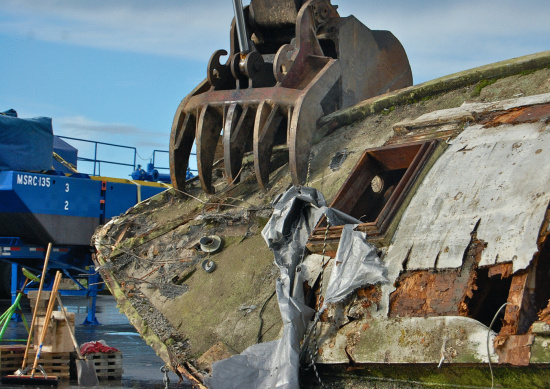
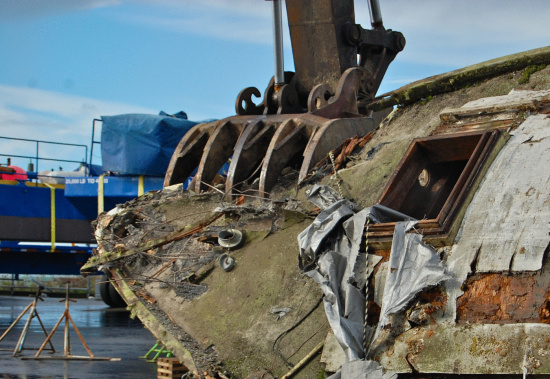

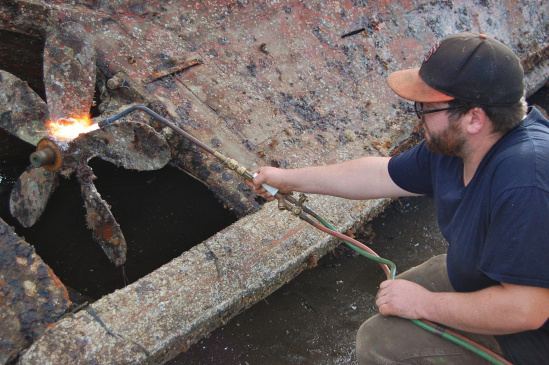
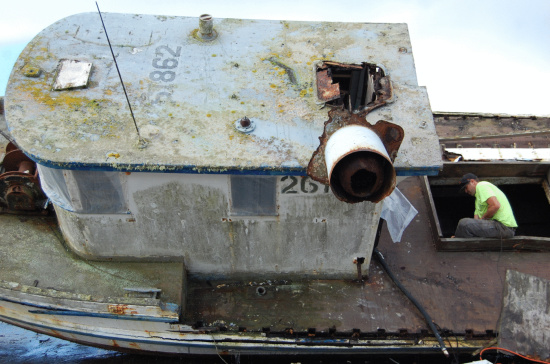
CLICK TO MANAGE